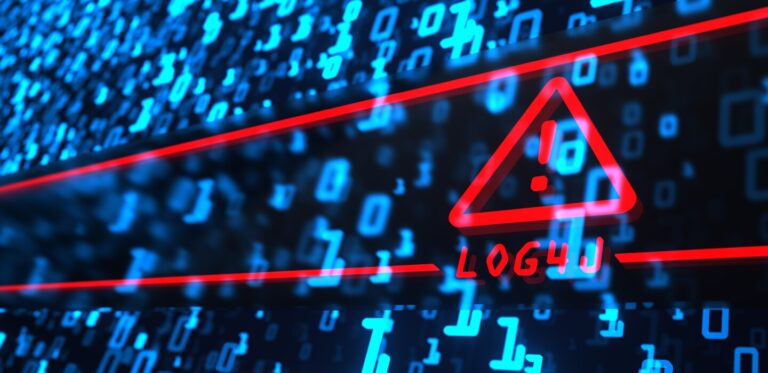(TNS) — About seven years ago, Clark University's technology lab was hacked. Now, students in the university's new cybersecurity degree program are learning how to defend against similar attacks here.
Cyberattacks have become so commonplace that people are becoming less aware of the threat, even though cyberattacks are expected to cost $9.22 trillion this year, according to Statista's Market Insights. I have become numb to it. Businesses now view responding to cyberattacks as a normal operating cost.
“It has become…a commercial criminal enterprise,” said Dwight Hughes, director of Clark University's cybersecurity program.
Rebound Orthopedics and Neurosurgery is the latest local company to fall prey to a cyber attack, while Clark County Government and Burgerville have also been attacked in recent years. And these are just the attacks that have become public knowledge.
Look at the numbers
Source: FBIC crime types by number of victims in Washington, 2023.
- Personal data breaches: 1,280
Crime Types by Victim in Washington in 2023
- Personal data breach: $11,062,062
- Phishing/Spoofing: $466,866
Washington state law requires organizations that own or license personal information to notify Washington state residents within 45 days of an attack that compromises insecure personal information. . However, organizations that experience attacks that do not involve consumer information are not required to notify anyone. Healthcare companies are subject to certain federal laws that require them to notify patients of breaches involving their protected health information.
Eric Landon, director of operations and technology at Riverview Bank in Vancouver, said businesses are being affected by more than just the initial attack.
“It's a reputational effect that suddenly you're on the evening news and newspapers,” Landon said.
A hit to a company's reputation can impact sales or deplete its existing customer base.
Additionally, there are associated costs, such as identifying issues, fixing them, notifying customers, and determining how to improve cybersecurity going forward.
“All of this comes at a huge cost,” Landon said.
The Clark University attackers ultimately did not obtain student information because they did not have any student information when they hacked the technology lab.
“But the hackers didn't know that when they got in there,” Hughes said.
counter threats
The booming cybercrime industry has increased the demand for cybersecurity professionals among companies. The state Employment Security Bureau predicts that the annual growth rate in this sector is 5.3%. Clark University developed a cybersecurity bachelor's degree program to train talent locally.
Clark University Cybersecurity Principal Lecturer Mohammed “Giga” Alkiq said the program helps students learn from real-world scenarios.
Information glossary
- Ransomware: Malicious software created to block access to a computer system until a ransom is paid.
- Malware: Software designed to interfere with, damage, or gain unauthorized access to a computer system.
- Phishing: An email that claims to be from a trusted source and is intended to divulge personal information to the recipient.
to ask for help
Victims of any crime can call, text or chat with experts at the National Crime Victims Center's Victim Connect Hotline at 1-855-484-2846. Resources are also available online at www.victimconnect.org.
The program was launched in 2020 with a small number of students. It's nearly full, with about 100 students training to become professionals who will be employed to protect businesses from malware, phishing, ransomware, and other cybercrime that threaten businesses and their data. The program is expected to expand to 150 students in the fall.
Landon said businesses should implement strong security and do everything they can to avoid being targeted. He said one option is to store more data offline.
“At some level, a breach is going to occur, and you need to be prepared to effectively recover from it without destroying your company,” Landon said.
Businesses strive to protect their data, but when data is breached, they often pay a ransom to get the lost data back. The ransom may be covered by insurance. However, consumer information is still routinely compromised.
Tips to prevent cyber attacks
Cyber attacks are occurring frequently these days. But Wendy Smith, chief risk officer at Columbia Credit Union, said consumers can take steps to protect themselves. Here's her advice:
- Never click on links in texts or emails to “verify” your account or confirm transactions.
- Please do not include personal information in your surveys.
- Never share your username, password, or one-time passcode with anyone.
- Please use unique passwords for all your accounts.
- If you believe a hacker has accessed personal information such as your social security number, credit card number, or bank account information, visit identitytheft.gov to report it and get a recovery plan.
Iva Lodi, chief program officer at the National Center for Victims of Crime, said the impact of cyber-attacks on victims is sometimes overlooked.
“The information that is stolen is often private,” Roddy said. “Financial fraud has far-reaching emotional consequences that many people are unaware of.”
Victims may deal with anger, sadness, loss, embarrassment, fear, or simply frustration.
Roddy said stolen information is also often distributed. Identity theft may ensue.
“It affects their ability to be whole,” she said.
Employees of compromised companies may also deal with their own concerns about opening email attachments or clicking on links.
“They… don't want to think they're the ones who caused the big problem,” Rodi said.
AI-powered cybercrime is on the rise
Experts predict that rapid advances in artificial intelligence will further facilitate cybercrime, making cybersecurity programs like Clark's even more important to combat evolving threats.
Mr. Clark's students are not memorizing facts, but rather learning how to apply and synthesize knowledge, Mr. Hughes said.
“They have to be lifelong learners,” Hughes said, pointing to the rapid advancements in technology.
Hackers are always looking for weaknesses in new technologies.
“It's always changing,” Alkik said. “It's only a matter of time.”
©2024 The Columbian, distributed by Tribune Content Agency LLC.


